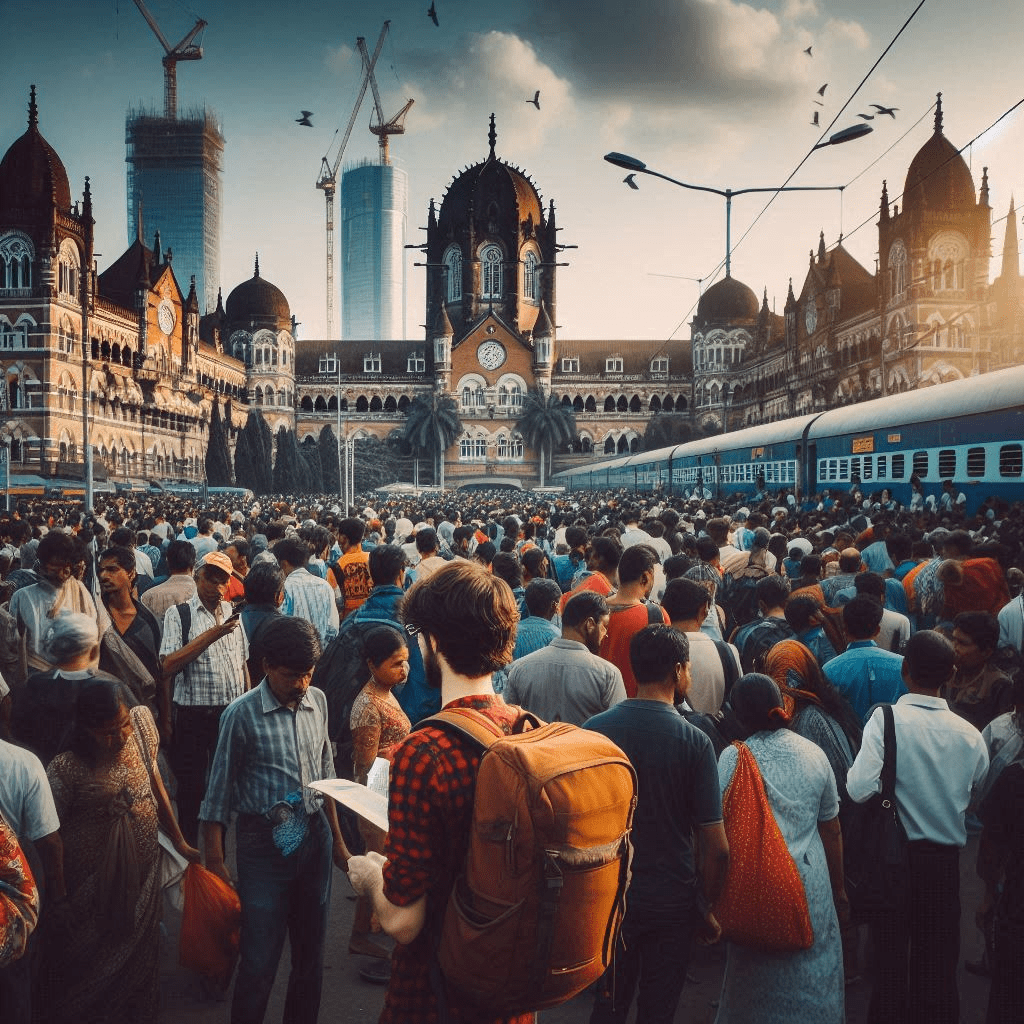Traveling to India is a vibrant, unforgettable experience, but it comes with unique social norms that might feel unfamiliar. Understanding personal space, privacy, and social dynamics will help you connect with locals and make your trip smoother. Here’s a practical guide to prepare you for the journey.
Personal Space in India
Closer Connections
In India, people often stand closer during conversations than you might be used to in Western countries. An arm’s length might feel too distant for locals, who may see it as standoffish. Expect friendly gestures like a pat on the back or a light touch on the arm—it’s a sign of warmth, not intrusion. For example, a shopkeeper might lean in while explaining a product, or a new friend might rest a hand on your shoulder during a chat.
Thriving in Crowded Spaces
India’s bustling population means public spaces like markets, buses, or trains can feel packed. A crowded Delhi metro or a lively street market in Mumbai is normal, not a sign of rudeness. Embrace it as part of the experience, but stay alert for your belongings in tight spaces. Pro tip: Keep your backpack in front or use a money belt to avoid pickpocketing in busy areas like Chandni Chowk.
ITT Warning
Queues: A Flexible Concept
Lines in India can be less structured than you’re used to. At train stations or ticket counters, people might nudge forward or stand close. Be polite but assertive to hold your spot. For instance, when buying tickets at a railway station, keep your elbows out slightly and calmly state your request to maintain your place. Patience is key—queues often move faster than they seem.
Privacy and Social Dynamics
Community Over Individual
Indian culture prioritizes family and community ties. Personal decisions, like where to eat or what to wear, might involve input from family or friends. As a traveler, you might notice locals openly discussing personal matters in public, like on a train ride from Agra to Jaipur. This reflects a collective mindset, not a lack of privacy.
Friendly Curiosity
Indians are warm and curious about visitors. Don’t be surprised if a stranger at a café in Goa asks about your hometown, job, or even marital status. These questions are a way to build rapport, not pry. For example, a rickshaw driver in Varanasi might ask about your family to share stories about his own—it’s a cultural bridge. Respond with a smile, share what feels comfortable, and enjoy the connection.
Privacy: A Different Perspective
Privacy in India might feel less rigid than in some cultures. Conversations about personal topics, like your travel plans or background, often happen openly in public spaces, like a bustling tea stall in Kolkata. Locals may also share personal details freely, expecting the same openness. If you prefer more privacy, that’s okay—just set gentle boundaries.
Tips for Smooth Social Interactions
Stay Respectful
Even if close proximity feels unfamiliar, respond with kindness. A smile and friendly tone work wonders, whether you’re bargaining in a Jaipur market or chatting with a fellow traveler on a Kerala backwater boat. Respecting local norms builds goodwill.
Use Non-Verbal Cues
If you need more personal space, subtle cues can help. Step back slightly during a conversation or cross your arms casually to signal your comfort zone. For example, in a crowded Mumbai train, turning slightly to face away can create a small buffer without offending anyone.
Set Boundaries Politely
If questions feel too personal—like “Are you married?” from a curious vendor in Udaipur—redirect the conversation. Try saying, “That’s an interesting question! By the way, can you recommend a good place to eat nearby?” This keeps the interaction friendly while steering it to neutral ground.
Embrace the Warmth
These cultural differences are a chance to experience India’s welcoming spirit. Engaging with locals, like sharing a laugh with a street food vendor in Hyderabad or joining a festival in Rajasthan, can create memorable moments. Lean into the openness—it’s one of India’s greatest charms.
Key Takeaways
- Observe Locals: Watch how people interact in places like a Chennai bus stop or a Rishikesh café to pick up social cues.
- Stay Open-Minded: Norms vary across India’s diverse regions, from urban Bangalore to rural Himachal Pradesh. When in doubt, keep a respectful distance and adapt as you go.
- Enjoy the Journey: India’s social fabric is rich and dynamic. Embracing it will deepen your travel experience, whether you’re exploring the Taj Mahal or a hidden village in Ladakh.
Categories :


